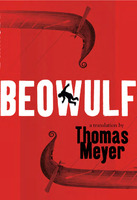Beowulf: A Translation
| dc.contributor.editor | Hadbawnik, David | |
| dc.contributor.editor | Remein, Daniel C. | |
| dc.date.accessioned | 2019-03-26 23:55 | |
| dc.date.accessioned | 2020-01-23 14:09:07 | |
| dc.date.accessioned | 2020-04-01T10:44:36Z | |
| dc.date.available | 2020-04-01T10:44:36Z | |
| dc.date.issued | 2012 | |
| dc.identifier | 1004489 | |
| dc.identifier | OCN: 1100543367 | en_US |
| dc.identifier.uri | http://library.oapen.org/handle/20.500.12657/25606 | |
| dc.description.abstract | Many modern Beowulf translations, while excellent in their own ways, suffer from what Kathleen Biddick might call “melancholy” for an oral and aural way of poetic making. By and large, they tend to preserve certain familiar features of Anglo-Saxon verse as it has been constructed by editors, philologists, and translators: the emphasis on caesura and alliteration, with diction and syntax smoothed out for readability. The problem with, and the paradox of this desired outcome, especially as it concerns Anglo-Saxon poetry, is that we are left with a document that translates an entire organizing principle based on oral transmission (and perhaps composition) into a visual, textual realm of writing and reading. The sense of loss or nostalgia for the old form seems a necessary and ever-present shadow over modern Beowulfs. What happens, however, when a contemporary poet, quite simply, doesn’t bother with any such nostalgia? When the entire organizational apparatus of the poem—instead of being uneasily approximated in modern verse form—is itself translated into a modern organizing principle, i.e., the visual text? This is the approach that poet Thomas Meyer takes; as he writes, [I]nstead of the text’s orality, perhaps perversely I went for the visual. Deciding to use page layout (recto/ verso) as a unit. Every translation I’d read felt impenetrable to me with its block after block of nearly uniform lines. Among other quirky decisions made in order to open up the text, the project wound up being a kind of typological specimen book for long American poems extant circa 1965. Having variously the “look” of Pound’s Cantos, Williams’ Paterson, or Olson or Zukofsky, occasionally late Eliot, even David Jones | |
| dc.language | English, Old (ca.450-1100) | |
| dc.language | English | |
| dc.subject.classification | thema EDItEUR::D Biography, Literature and Literary studies::DB Ancient, classical and medieval texts | en_US |
| dc.subject.other | Beowulf | |
| dc.subject.other | Old English poetry | |
| dc.subject.other | modern translation | |
| dc.subject.other | avant-garde poetry | |
| dc.title | Beowulf: A Translation | |
| dc.type | book | |
| oapen.identifier.doi | 10.21983/P3.0009.1.00 | |
| oapen.relation.isPublishedBy | 979dc044-00ee-4ea2-affc-b08c5bd42d13 | |
| oapen.relation.isbn | 9780615612652 | |
| oapen.collection | ScholarLed | |
| oapen.pages | 312 | |
| oapen.place.publication | Brooklyn, NY | |
| oapen.identifier.ocn | 1100543367 |

